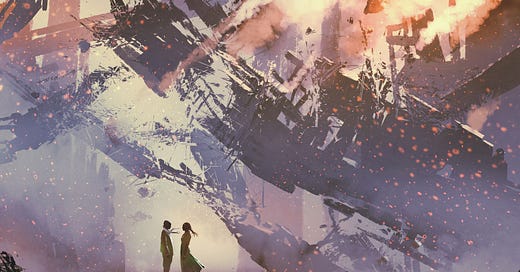Everyone Daydreams About Collapse. Few Understand It.
The author of "Frankenstein" wrote an honest book about the end of the world.
You probably know about Frankenstein, but maybe you don't know about The Last Man. Mary Shelley published it about eight years later, after her husband and her best friend both died. It's one of the first pieces of dystopian, apocalyptic fiction. The story begins in the 2070s and wraps up around 2100. A plague wipes out most of humanity, leaving one lonesome aristocrat who decides to pack all his stuff into a boat and go looking for survivors.
He doesn't find any.
Critics hated the book. They tore it apart. They didn't like how Shelley portrayed rich people or politicians. They didn't like the characters. They seemed to find it plausible that a mad scientist would create life and disown it, but not plausible that a plague could wipe out 99 percent of all humans. Now 200 years later, it's enjoying something of a revival. Cambridge professor Rebecca Barr describes Shelley as "unsparing in her depiction of the limits of individual agency and the fallacy of personal exceptionali…





